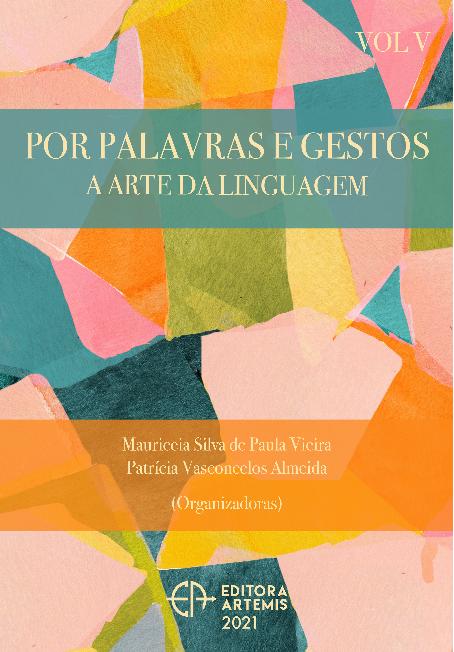Mostrar el registro sencillo del ítem
dc.contributor.author
Arrizabalaga, Maria Ines

dc.contributor.other
Silva de Paula Vieira, Mauriceia
dc.contributor.other
Vasconcelos Almeida, Patrícia
dc.date.available
2023-05-08T12:24:32Z
dc.date.issued
2021
dc.identifier.citation
Arrizabalaga, Maria Ines; The Lord of the Rings y su lugar en Pegasus: Los avatares de una poética; Artemis; 5; 2021; 131-138
dc.identifier.isbn
978-65-87396-43-9
dc.identifier.uri
http://hdl.handle.net/11336/196624
dc.description.abstract
En The Lord of the Rings J. R. R. Tolkien presenta su ‘tesis lingüística’; con ella busca demostrar que los teoremas empleados en Filología arrojan resultados conjeturales, y lo demuestra con una geografía lingüística para Tierra Media. Ésta incluye dialectos y cronolectos del inglés, que conviven en adstrato con lenguas artificiales sobre el sustrato de las naturales. En la traducción al castellano de editorial Minotauro para el mundo hispanohablante, dicha ‘tesis’ ha sido silenciada y debe considerarse, por ello, qué alcance posee esa ausencia entre los lectores que sólo acceden a la obra de Tolkien mediante la versión castellana. Por otra parte, Minotauro ha estructurado sus colecciones según criterios temáticos; las series editoriales son Kronos, sobre ciencia ficción; Hades, para la narrativa del ‘terror’; Ucronía, con novelas sobre hipótesis de qué habría ocurrido en el mundo si el pasado hubiera sido diferente; Utopía, encargada de obras de raigambre sociológica y política; y Pegasus, que recoge novelas de fantasy y, entre ellas, The Lord of the Rings. En esta presentación se discutirá el lugar de la trilogía a partir de la versión de Minotauro, en ausencia de la ‘tesis lingüística’ y de cara a la consiguiente modificación en la poética autoral.
dc.description.abstract
In The Lord of the Rings J. R. R. Tolkien presents his “linguistic thesis”, with which he seeks to prove the philological theorems provide conjectural results, and he shows that by providing a linguistic geography for Middle Earth. Such a map includes English dialects and chronolects, which exist alongside with artificial languages on the basis of natural languages. In the Spanish translation by Minotauro Editorial House for the whole of the Spanish speaking world, such a “thesis” has been silenced, and one has to ponder about what this absence means for readers who can only access Tolkien’s works in its Spanish version. On the other hand, Minotauro has structured its series according to thematic criteria; the editorial series are Kronos, about science-fiction; Hades, for terror narrative; Ucronía, containing novels about what could have happened if the world had been different; Utopía, with works of sociological and political discussions; and Pegasus, collecting fantasy novels, The Lord of the Rings being one of them. In this article, I discuss the position of the trilogy in Minotauro’s version, in the absence of the author’s linguistic thesis and before the subsequent modification of an author’s poetics.
dc.format
application/pdf
dc.language.iso
spa
dc.publisher
Artemis
dc.rights
info:eu-repo/semantics/openAccess
dc.rights.uri
https://creativecommons.org/licenses/by-nc-nd/2.5/ar/
dc.subject
TOLKIEN
dc.subject
TRILOGÍA
dc.subject
POÉTICA
dc.subject
PEGASUS
dc.subject.classification
Otras Lengua y Literatura

dc.subject.classification
Lengua y Literatura

dc.subject.classification
HUMANIDADES

dc.title
The Lord of the Rings y su lugar en Pegasus: Los avatares de una poética
dc.title
The Lord of the Rings and its position in Pegasus: The avatars of a poetics
dc.type
info:eu-repo/semantics/publishedVersion
dc.type
info:eu-repo/semantics/bookPart
dc.type
info:ar-repo/semantics/parte de libro
dc.date.updated
2022-12-06T11:14:39Z
dc.journal.volume
5
dc.journal.pagination
131-138
dc.journal.pais
Brasil

dc.journal.ciudad
Curitiba
dc.description.fil
Fil: Arrizabalaga, Maria Ines. Consejo Nacional de Investigaciones Científicas y Técnicas. Centro Científico Tecnológico Conicet - Córdoba; Argentina. Universidad Nacional de Córdoba. Facultad de Lenguas; Argentina. Instituto Universitario Patagónico de las Artes; Argentina
dc.relation.alternativeid
info:eu-repo/semantics/altIdentifier/url/https://www.editoraartemis.com.br/artigo/32430/
dc.relation.alternativeid
info:eu-repo/semantics/altIdentifier/doi/http://dx.doi.org/10.37572/EdArt_16082143911
dc.conicet.paginas
292
dc.source.titulo
Por Palavras e Gestos: A Arte da Linguagem
Archivos asociados
